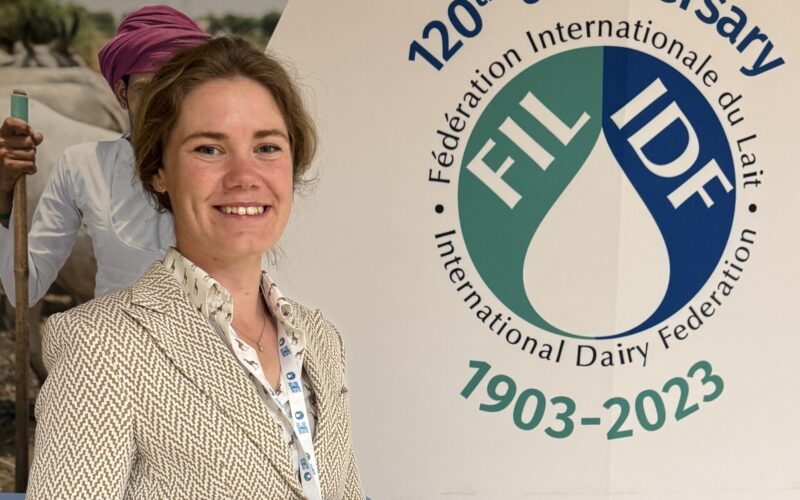
Natalie Ahlborn honoured for research into the nutritional value of milk depending on how it is processed.
Dairy farmer and researcher Natalie Ahlborn has received second place in the prestigious International Dairy Federation Early Career Science Award at the 2024 World Dairy Summit in Paris.
Her work was part of the New Zealand Milk Means More (NZ3M) project carried out at the Riddet Institute at Massey University in Palmerston North.
Ahlborn looked at processing treatments of milk and their effects on digestion and nutrient absorption with the aim of understanding what the changes mean when we consume milk.
“I found the different structures from the different processing treatments behaved quite differently in the stomach, which led to the differences in the release of protein and fat,” Ahlborn said.
“I was particularly interested in what those differences mean for protein digestion and absorption to meet amino or protein intake needs and related to the uptake of essential amino acids.”
Her reseach shows that despite very similar compositions, differently processed milk is not nutritionally the same after consumption. This is the result of differences at the stomach level which has implications throughout the gastrointestinal tract.
Ahlborn said the findings provide an opportunity to harness common milk processing treatments to fine-tune how to meet a population’s nutritional needs – for example, the elderly population.
“Some of the industry groups in the NZ3M programme are already utilising these findings to develop high-value milk based products.
“However, research like this is just one part of the whole picture and it’s paramount that we continue our efforts in bridging practical, scientific, technical and regulatory aspects of dairy so that we see milk feeding our global population well into the future.”
The International Dairy Federation (IDF) Early Career Science Award was established three years ago and named in honour of Professor Pavel Jalen, who spent half a century ensuring talented scientists dedicated their professional lives to dairy science and technology.
Maria Frizzarin from Ireland won first prize with her work looking at whether individual cow milk mid-infrared spectrum can be used to quantify cow environmental footprint.
Due to the calibre of entrants, the judges opted for a third equal placing, awarded to Mark Timlin from Ireland and Riccardo Cocuzzi from Switzerland.
Timlin’s work was around the “typical” Irish pasture-based system on the composition and quality of milk and dairy products. Despite consumer demand for grass- and pasture-fed produce from consumers, the majority of dairy farms around the world operate indoor mixed ration feeding systems, which was what led to the project.
In his findings, unsurprisingly, the conventional indoor diets (total mixed rations) produced more milk and more milk solids. But pasture-fed cows had better udder health with lower somatic cell counts.
He also found that Irish pasture-fed products had healthier fatty acids, including 83% more omega-3 fatty acids, which are important for eye and brain health and improved cardiovascular health.
In Cocuzzi’s research he was exploring how the microorganisms important to Swiss-type cheese production metabolise lactate.
You can now read the most important #news on #eDairyNews #Whatsapp channels!!!
🇺🇸 eDairy News INGLÊS: https://whatsapp.com/channel/0029VaKsjzGDTkJyIN6hcP1K




















